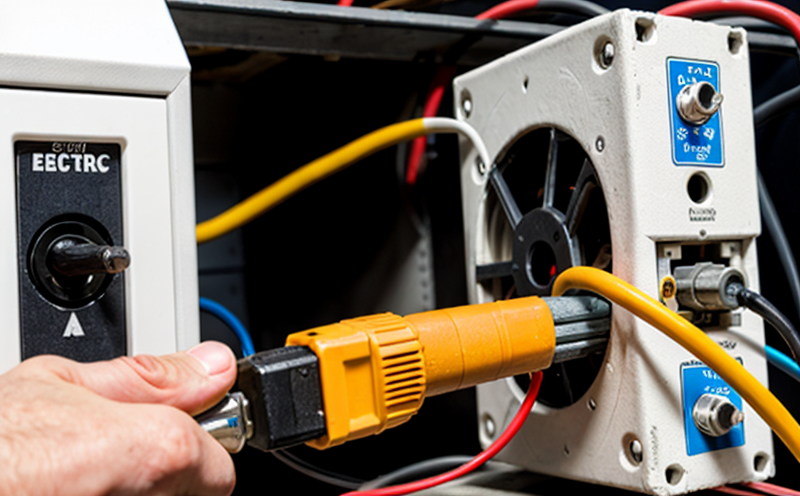IEC 61000-4-34 Voltage Dips and Variations Test
The IEC 61000-4-34 standard is a critical part of the International Electrotechnical Commission's (IEC) suite of guidelines for electromagnetic compatibility (EMC). This particular standard focuses on voltage dips and variations, which are temporary reductions or increases in supply voltage that can have significant impacts on electronic equipment. These disturbances can lead to malfunctions, data loss, and even permanent damage to sensitive devices.
The standard provides a framework for testing the robustness of electrical equipment against such disturbances. It is particularly relevant for HVAC (Heating, Ventilation, and Air Conditioning) systems, where reliability is paramount. HVAC equipment often contains complex electronics that are susceptible to voltage fluctuations. Compliance with IEC 61000-4-34 ensures that these devices can operate reliably in real-world conditions.
The test involves applying controlled voltage dips and variations to the device under test (DUT) over a specified duration and at defined levels. The DUT is exposed to a series of dips and variations, which simulate the types of disturbances it might encounter during operation. This testing helps manufacturers identify potential weaknesses in their designs and allows for necessary improvements.
The significance of this test lies in its ability to ensure that HVAC equipment can maintain performance under adverse conditions. By adhering to IEC 61000-4-34, manufacturers demonstrate a commitment to product quality and reliability, which is crucial in the HVAC sector where system failures could lead to significant operational disruptions.
Compliance with this standard also aids in ensuring interoperability between different components of an HVAC system. When all parts are tested against the same criteria, they are more likely to work together seamlessly under varying power conditions.
Why It Matters
The importance of IEC 61000-4-34 cannot be overstated. Voltage dips and variations can occur due to various factors, including sudden load changes on the power grid, short circuit faults, or even natural phenomena like lightning strikes. These events are not uncommon in industrial settings where HVAC equipment is often deployed.
Failure of a critical component during such an event could result in system downtime, increased maintenance costs, and potential safety hazards. For example, if a temperature control system fails due to a voltage dip, it might lead to overheating or freezing conditions within the facility, affecting both comfort and operational efficiency.
Moreover, non-compliance with IEC 61000-4-34 could result in product recalls, regulatory penalties, and loss of consumer trust. In an era where sustainability and reliability are key considerations, customers expect their HVAC equipment to perform consistently under all conditions. Ensuring compliance helps companies maintain a competitive edge while also adhering to legal and ethical standards.
The test is especially important for manufacturers who operate in regions with unstable power grids or those who sell products internationally where local regulations may vary. Consistent performance across different environments can significantly enhance the marketability of HVAC equipment.
Eurolab Advantages
At Eurolab, we pride ourselves on providing comprehensive and accurate testing services that meet international standards like IEC 61000-4-34. Our state-of-the-art facilities and experienced technical staff ensure that every test is conducted with precision and repeatability.
- Our lab adheres strictly to the latest versions of IEC standards, ensuring that all tests are up-to-date and relevant.
- We offer a full range of testing services, from initial design reviews to post-production validation, covering every aspect of compliance.
- Our team of experts is well-versed in both European and international regulations, allowing us to provide tailored solutions for global markets.
- We employ the latest instrumentation and software to conduct tests, ensuring accurate results that can be relied upon by clients.
Use Cases and Application Examples
| Use Case | Description |
|---|---|
| Data Center HVAC Systems | Voltage dips can cause temporary data loss or system crashes, leading to significant downtime. Testing these systems ensures they can withstand such events without failure. |
| Commercial Building HVAC Equipment | In commercial spaces, sudden temperature changes due to voltage variations could lead to discomfort and increased energy consumption. Compliance with IEC standards helps maintain comfort levels and efficiency. |
| Hospital HVAC Systems | Healthcare facilities require uninterrupted power supply for critical systems. Testing ensures these environments remain safe and operational even during power disturbances. |





